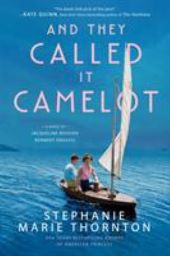
Off the Shelf: The Biographical Novel
Posted May 12, 2021
By Matthew York
Adult Services Librarian with the Warren-Trumbull County Public Library
Non-fiction and fiction blur, an actual person comes to life but in fictional terms, and we know this must be the biographical novel. Historical events set the stage. The dialogue is plausible, but largely make-believe. Sometimes historical characters and events reverse course on our reading through the pages of a biographical novel, for better or for worse.
I have summarized some recent, well-received biographical novels, below. All are available to be checked out from your Warren-Trumbull County Public Library:
 |
Annelies (2019) by David R. Gillham
Anne Frank, infamous author of The Diary of a Young Girl, is one of the most influential people to have written about the Holocaust. In this biographical fiction work, Annelies, David R. Gillham explores ideas about the kind of writer that Anne Frank might have become if she were to have survived World War II. If she perceived the aftermath of the war as behind her, Gillham suggests, she would have found a way to do so with a unique voice all her own. |
|
 |
Finding Dorothy (2019) by Elizabeth Letts
Elizabeth Letts writes a novel based closely on the lives of married couple L. Frank Baum and Maud Baum. Maud recounts how she marshalled MGM producers to adapt her husband’s book The Wizard of Oz to become the 1939 movie in certain ways that she felt preserved the true spirit of the story, with secrets she alone knew about regarding her husband’s ties to the story. Maud Baum draws on her lived experiences as one of the first women Ivy Leaguers, also on her tough years out on the prairie, showing perseverance, to protect Judy Garland on set when the studio begins raising the pressure on the rising star. |
|
 |
Paris, 7 A.M. (2019) by Liza Wieland
In real life, poet Elizabeth Bishop left an incomplete account of her life in 1937, which stands out, because for many years to follow she was a persistent diarist. Author Liza Wieland conceives how Elizabeth Bishop’s life may have been in Paris in June 1937. We see Elizabeth Bishop and her college roommates make way from Paris to Normandy, going underground in their involvement with a group of expatriates who move Jewish “orphans” to Catholic convents to be baptized. When World War II breaks out and families are split up, this rescue could mean long-term safety for many of the Jewish children. |
|
 |
And They Called It Camelot: A Novel of Jacqueline Bouvier Kennedy Onassis (2020) by Stephanie Marie Thornton
Stephanie Marie Thornton writes a fictionalization of the life of Jacqueline Bouvier Kennedy Onassis. Socialite Jackie seemed to be the navigator of her own destiny, while living in the world spotlight. She used charm and intelligence to marry into the Kennedy family, and later, to advocate for her husband’s so-called first one-thousand days in Camelot. Through grief and ruin, Jackie must re-discover an identity of her own and take her own place living as an American legacy. |
|
 |
Lady Clementine (2020) by Marie Benedict
Newlyweds Clementine and Winston Churchill step off a train in 1909. An angry female attacker pushes Winston toward the tracks of an oncoming train. However, Clementine pulls at his suit jacket in this key moment so that he stops short and lives, and yet she will save her husband from danger again and again in the years that follow. Unflinching, ferocious, and ambitious are words to describe Clementine Churchill as she stands beside Winston Churchill through war, unfair expectations, and against enemies in this biographical novel. |
|
 |
The Woman of a Thousand Names (2020) by Alexandra Lapierre; translated by Jeffrey Zuckerman
Alexandra Lapierre writes a tale about a beautiful Russian aristocrat who is called by many names: Countess Benckendorff, Baroness Budberg, Maria Ignatievna Budberg, Moura, “the Mata Hari of Russia.” The protagonist Moura fights to survive the deadly Russian Revolution. Amid this, she falls into a heated romance with British secret agent Sir Robert Bruce Lockhart, until he is suddenly and mysteriously deported from Russia. Gaining passports and tickets to various countries, Moura meets lovers and acquaintances whose opinions of her vary over time, and she is suspected to be a double agent by government officials for her widespread connections and international travels. |
